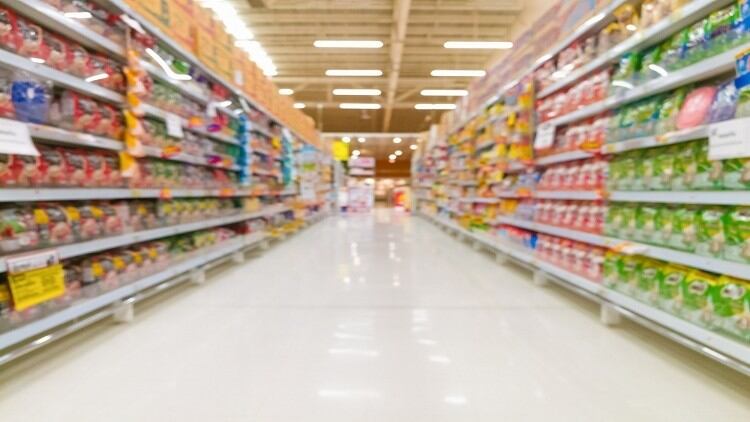Although Thailand has not yet formally ordered for a lockdown throughout the country, Thai Prime Minister Prayut Chan-o-cha declared a nationwide State of Emergency on March 25 after the country saw 934 COVID-19 cases and four deaths, and also imposed a nationwide curfew from 10pm to 4am starting on April 3.
Limited travel (with social distancing measures observed) will still be allowed in the day.
“To increase the effectiveness of the effort to control the spread and reduce commutes, I am issuing a curfew order nationwide,” said Thai Prime Minister Prayut Chan-o-cha in a televised announcement.
“Please don’t panic and hoard goods because you can come out to buy them in the daytime as usual.”
According to The Star, exemptions will be made for ‘essential staff’, including those involved in the transport of food products.
The nation’s capital city Bangkok has been placed under ‘soft lockdown’, closing 26 types of entertainment venues including restaurants, malls and markets – but the directive has clearly stated that takeaways from all eateries will still be allowed, and supermarkets and markets selling perishable goods, dried foods and takeaway foods may continue operations.
Thailand’s largest island Phuket has also also placed under lockdown, and Pattaya is considering one too - leading many to believe that the country as a whole is moving closer to a nationwide restriction order similar to that in neighbouring Malaysia.
Despite these fears, local authorities have emphasised that the public has no need to fear any lack in food supply as the government has multiple strategies in place to prepare for any possibility of a lockdown.
In a formal statement, Minister of Agriculture and Co-operatives General Chalermchai Sreeon said via his advisor Alongkorn Ponlabut that: “Thailand will definitely not see any shortage of domestic products – all departments under the Ministry of Agriculture are closely monitoring agricultural product production and management,.”
“[We are also] increasing channels of bringing these products to the online market, and preparing to support labour migration in the agricultural sector [in order to support employment]”.
Ponlabut added current supply chain forecasts confirm that even in the case of a lockdown taking place, there would be no shortage of goods for three months, six months, or even one year.
“For rice, in 2019 Thailand produced some 28.4 million tons of paddy. [Domestic] consumption for 2020 is forecasted at 13.3 million tons, [and] 1.37 million tons for seed production. [Therefore], Thailand has sufficient rice for consumption, and may even have enough for exports,” he said.
“For fish and seafood, Thailand normally consumes just 17.24% of production and the rest is exported. Chicken, eggs, pork, palm oil, coconut products and sugar are all also being produced at sufficient amounts to support domestic consumption.”
The Ministry of Agriculture also mentioned plans to support the local fruit industry through the COVID-19 outbreak, including promoting and encouraging fruits consumption in the country according to the ‘Eat Thai First’ concept.
Processed foods
Thailand’s Ministry of Commerce has also set up seven ‘war rooms’ earlier this month, which are joint working groups between the relevant industries and government departments to ensure sufficient, uninterrupted supply of necessities.
Three of these are food-related: Rice, fruits and vegetables, and processed foods. The other four are livestock, medical supplies, logistics & delivery, and animal feed.
"The seven war rooms [will look to] monitor the situation about manufacturing, processing, trading, export and product distribution in new channels such as home delivery," said Commerce Minister Jurin Laksanawisit after a high-level commerce meeting.
Most factories producing F&B products have also been allowed to continue operations.
Panic-buying
Despite these measures, panic-buying still took place in Thailand when consumers were initially made aware of a possible lockdown, particularly impacting rice and egg purchasing.
Hoarding became so severe that the Ministry of Agriculture issued two extra notices informing of more plans that were in place, in attempts to again assure the public that both of these commodities were sufficient.
“We are adjusting the rice distribution plan in the country – over 34,000 tons of seeds will be distributed to farmers in April by sending these to their homes,” said Deputy Minister of Agriculture and Cooperatives Praphat Photosuthon.
“This is to ensure that production can be achieved as intended. [There] is definitely enough for consumption – do not panic and buy too much.
“It is also necessary to ensure that merchants do not take advantage of the situation to hoard fixed-price products or take advantage of consumers.
Sreeon made a similar plea to the public in a separate statement on egg hoarding, saying: “There are about 49 million laying hens standing in the country, giving about 41 million live eggs per day. [This amount is definitely enough] given the consumption rate of approximately 39 million fresh eggs per day.”
Egg-hoarding in the country has purportedly caused prices to balloon by some three to five times, leading the ministry to ban egg exports until the end of April.





